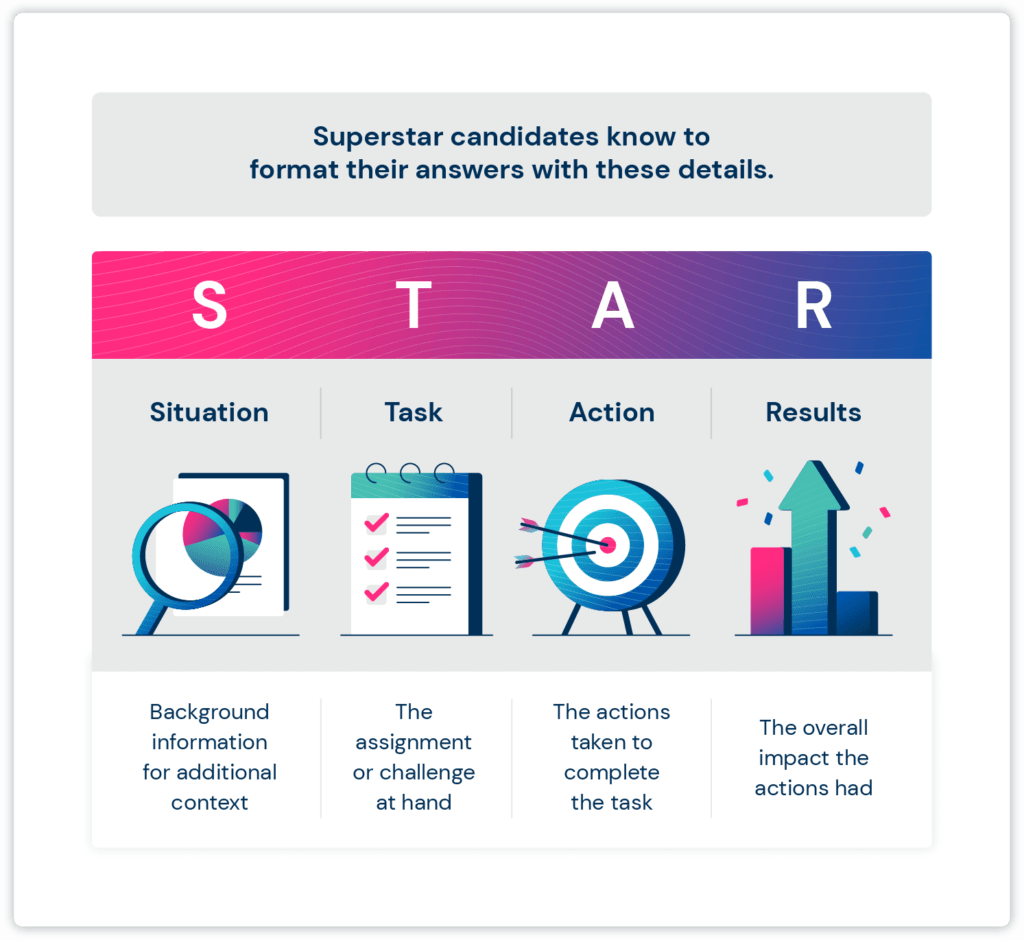
There’s no denying that the sales industry is a competitive space. And in order to land the job you want, you need to stand out to companies and give them a reason to hire you. Of course, after submitting your resume, the interview is the most important part of the process, as it’s the time you can highlight your experience and really showcase your unique skills and abilities. Below, we’ll cover some ways you can prepare for a sales interview, as well as potential sales interview questions you can practice to make sure you’re ready to land your next sales role.
Steps to Prepare for a Sales Interview
1. Research the company
A big mistake that you don’t want to make is not taking the time to research the company prior to the interview. This is especially important for sales roles, as you’ll want to know what products or services the company offers. There’s a good chance they’ll ask you questions related to their products, so make sure you come as prepared as possible.

2. Rehearse your answers
Practicing your answers to common interview questions can help take some of the stress off of you, so you feel confident going into the interview. Everyone gets nervous before an interview, even big executives. But practicing your answers ahead of time can help the interview run smoothly.
3. Tailor your experience to the role you’re applying for
When the interviewer asks you to highlight your experience, frame it in a way that relates to the expectations of the role you’re interviewing for. This will help further show them that you’re a good fit for the position and that you did your research.
This is also a great strategy if you’re making a career shift and don’t necessarily have sales experience. Take broader skills you’ve learned from previous jobs and explain how you can utilize them in this new role.
4. Make sure your answers are customer focused
The most important part of being a good salesperson is always putting the customer first. When it comes to your answers, make sure you’re staying customer-centric so they know that the customer’s needs are always your top priority.
5. Utilize the STAR method when building out your sales interview answers
The STAR method is an interview answering technique that allows you to tell a story — making it a great strategy to use when being asked situational sales interview questions. Your answer should always following the STAR framework, which stands for situation, task, action, and result. This will help you organize your answer to follow a chronological sequence while putting the most important information at the forefront.
6. Come ready with questions to ask the interviewer
At the end of almost any interview, the interviewer is going to ask if you have any questions for them. Always come ready with at least a couple of questions. This will show that you’re genuinely interested in the position and learning more about the company. Try asking questions related to the role, as well as cultural questions, so you can get a good sense of the company’s values.
Here are a few examples of questions you could ask the interviewer:
- What qualities do you believe are essential for being successful in this role?
- What is the biggest challenge that I may face in this role?
- What metrics or goals will I be evaluated on?
- How is this role expected to evolve in the next few years?
- What are your expectations for the first three months?
Example Sales Interview Questions to Practice Ahead of Your Interview
Not all interviews are created equal. But these potential interview questions can help you feel prepared and confident going into your next sales interview.
Sales role questions:
- How would you handle any challenging or demanding client?
- What do you like least about sales?
- What do you like most about sales?
- What does your current sales process look like?
- Can you sell me this pen?
- What sales software and technology do you have experience using?
- Are you comfortable making cold calls?
- Tell me about a time you fell short of a sales goal. Why do you think that happened?
Personal career questions:
- Where do you see yourself five years from now?
- What are your greatest strengths and weaknesses?
- What are your long-term career goals in sales?
- What hobbies do you enjoy outside of work?
- How do you stay motivated at work?
Culture fit questions:
- What makes you stand out from other candidates we may be interviewing?
- Would you describe yourself as more analytical or creative?
- Why are you interested in our company?
- Would team members describe you as collaborative or competitive?
- What have you liked the most and least about previous management styles you’ve worked with?
Situational questions:
- Tell me about a time you received constructive criticism and how you handled it.
- Can you tell me about a time you made a mistake and how you handled it?
- How would you handle an unresponsive prospect?
- Explain a time you’ve managed conflict with a coworker.
- Have you worked remotely before? If so, what challenges did you encounter?
Interviews can be nerve-wracking for all of us, but being prepared can help calm your nerves. By following the tips outlined above and practicing the example questions, you’ll be able to land your next sales role in no time.
Article guest written by Corey Doane. Corey Doane is a digital content creator and helps brands create helpful and compelling stories worth sharing. Her background in digital marketing and creative writing has led her to work with clients ranging from business to e-commerce to lifestyle.
Last updated March 16, 2023





